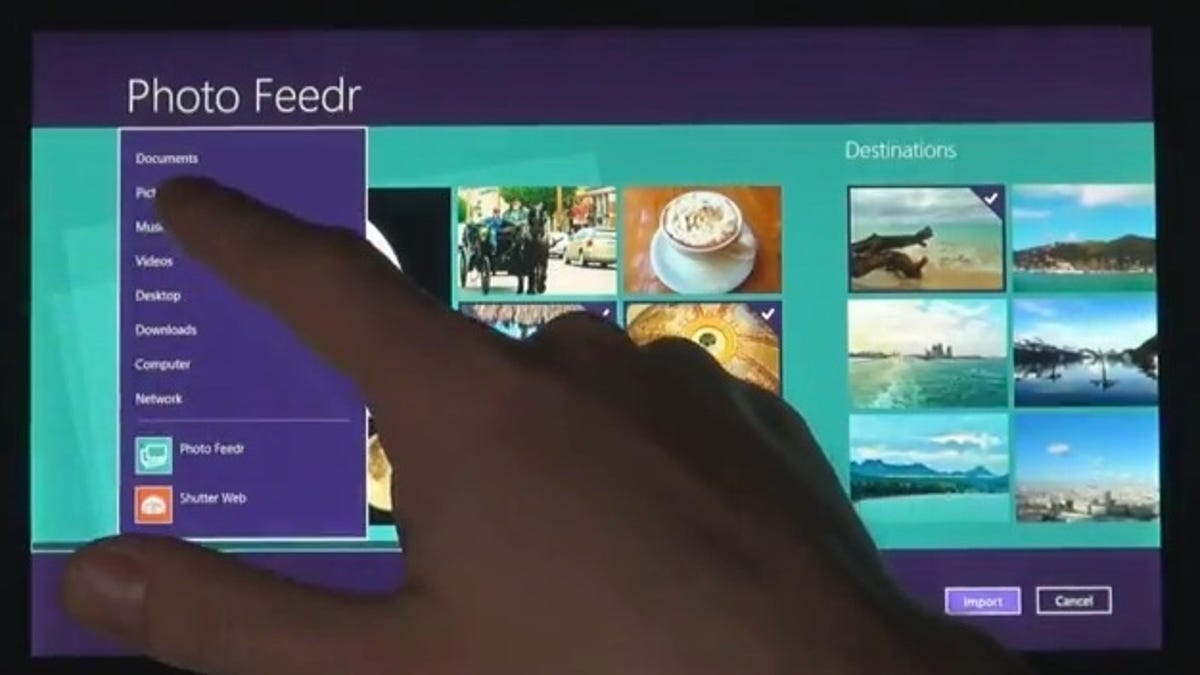For Intel, Windows 8 is key talking point at CES
Chip giant will link Windows 8 to the success of ultrabooks at the Consumer Electronics Show in Las Vegas next week.

The fate of ultrabooks is intimately linked to Windows 8, as CEO Paul Otellini has made clear in recent talks--and as he is expected to reiterate at the Consumer Electronics Show in Las Vegas next week.
Ostensibly, CES for Intel and the PC crowd is about the crush of new Windows 7 ultrabooks hitting the market. But internally, Intel is keen on Windows 8 as a vehicle to close the yawning gap with Apple's mobile devices, particularly the iPad.
Otellini got a rude reminder of how important ultramobile devices are in 2012 and beyond when an analyst at a Credit Suisse Technology Conference in November challenged Intel's laptop strategy by asking the CEO, "But how many people in this room have iPads?"
That was a rhetorical question, of course. The bottom line is that Intel will not be strong in phones--at least not for a while. Even with the introduction of phones running on its new Medfield chip.
But it can succeed quickly in tablet-like devices via Windows 8. Many of those newfangled devices will be labeled ultrabooks but be indistinguishable from tablets.
"Windows 8 is one of the best things that's happened to our company," Otellini said at the Credit Suisse conference.
Windows 8 duality: The flexibility of jumping in and out of tablet mode--aka the Metro interface--on Intel-based devices will be key for Intel. "There's...Metro [But] for Intel-based machines, there's also one button that takes you back to your classic Windows experience," he said at the conference.
Otellini continued. "That's a software button essentially. You're running one manifestation of the operating system with two different GUIs, it's not running virtual machines. It's one manifestation. This gives [Intel's] x86 a unique advantage as x86 comes to market...we can take advantage of all of the legacy that was ever written plus all of the drivers."
To drive this point home, Otellini said there are more than 6 million apps written for x86, dwarfing any other platform.
All of this, of course, is a counterpoint to Window 8 on ARM (WoA): for the first time, mainstream Windows will run on both Intel's x86 and devices with ARM chips from companies like Texas Instruments, Qualcomm, and Nvidia.
Windows 8 touch development: A lot of the key ultrabook development that is tied to the $300 million ultrabook fund is focused on touch technology for Windows 8, as Otellini pointed out the Intel Capital Global Summit earlier in November.
To hit the volume price points, Intel needs to have ultrabooks priced as low as $699 next year, he said. "To do that, we have to get touch to a lower cost. This is particularly important, as we move to the launch of Windows 8. The iPad and the iPhone have made touch a paradigm," he said.
So, how important is touch to Intel and PC makers? "Our view is that in the ultrabook lines, touch is a pretty critical enabler. When users see that new Windows [8] interface, they're going to want to touch it. If the screen does nothing, you have disappointed [the] consumer," Otellini said.
A lot of PC makers are already working on these devices, according to Otellini. "A number of our customers will bring out [models] for Windows 8 that have touch enabled on devices. A lot of folks are working on convertible, removable form factors," he said at the Credit Suisse conference.
Should Apple be worried? We should have a better idea by CES 2013.

